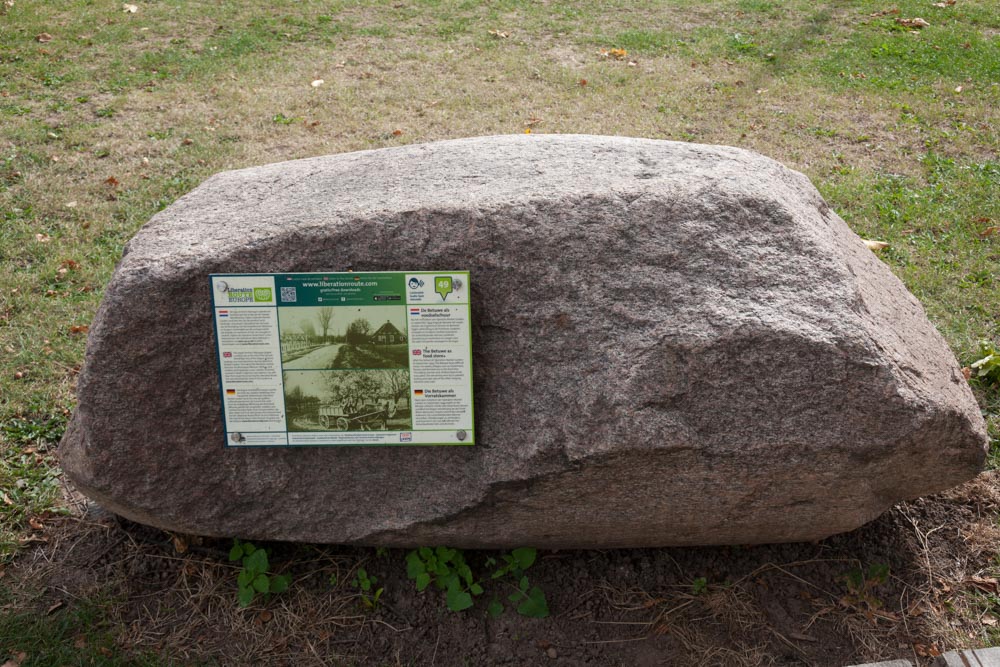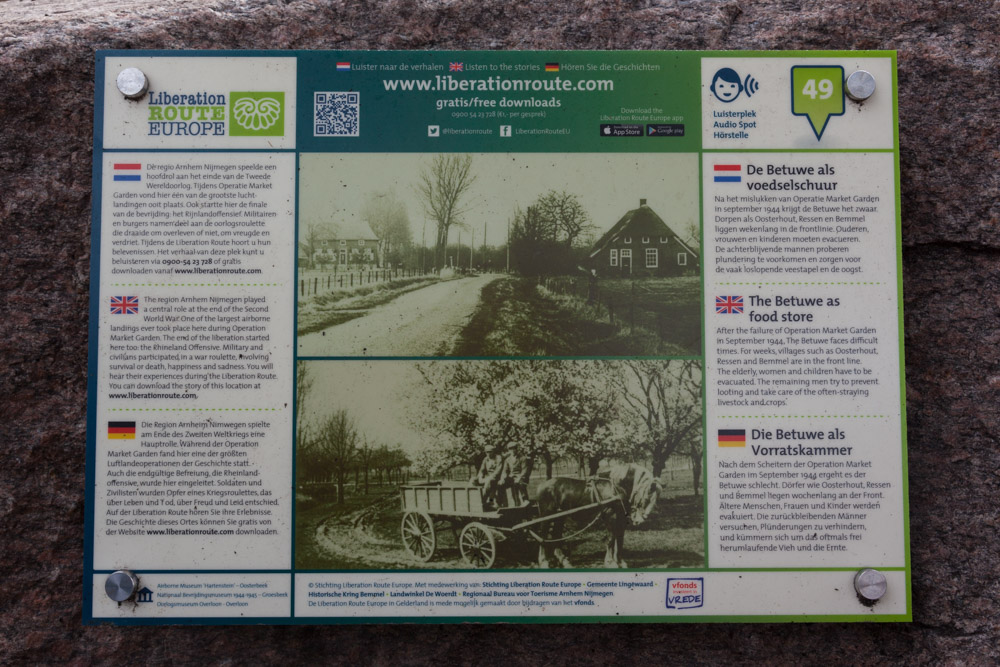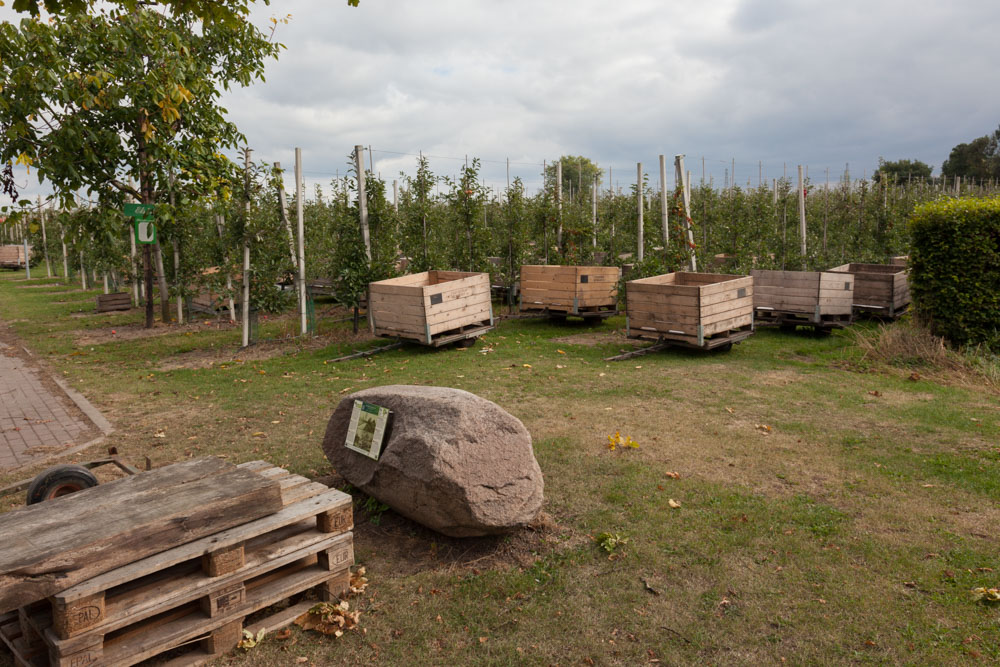Liberation Route Marker 049: The Betuwe as food store
The Betuwe as food store
After the failure of Operation Market Garden in September 1944, the Betuwe suffers difficult times. For weeks, villages such as Oosterhout, Ressen and Bemmel are in the front line. The elderly, women and children have to be evacuated. The remaining men try to prevent looting and take care of the often-straying livestock and crops.
The Betuwe is traditionally a fertile area. So it’s hardly surprising there are many fruit growers here. Their apples, pears and cherries have been in demand for centuries.
When World War II broke out, the Germans quickly drew up strict regulations concerning the supply of fruit to Germany. The director of the fruit auction in Ressen cleverly attempts to find ways to avoid exporting ‘his fruit’ and only to export the worst quality fruit to Germany. He tries to keep the best fruit in the Netherlands.
In September 1944, the Betuwe finds itself in the front line. The Germans first use the auction hall as a munitions depot but it eventually goes up in flames. A desolate twisted mass of steel is the result. The fruit depots, full of fruit boxes, are spared. Weeks of heavy shelling follow in the area and it is becoming increasingly dangerous for the residents.
On Allied orders, the elderly, women and children are evacuated to Brabant. Over the following months, the remaining men carry on working as best as possible on ‘Men’s-island’, as the area is now called in the local vernacular.
The delivery and shipment of fruit, potatoes, beet and other crops stagnates. Indeed, there is hardly anyone available to help with harvesting. Moreover, due to constant shelling, it is often too dangerous to be exposed in the fields or orchards. The secretary in charge of the food supply in Ressen arranges that all available food is delivered to the right places.
Audiospot - The Betuwe as food store
Liberation Route Europe is a certified Cultural Route of the Council of Europe. With hundreds of sites and stories in nine European countries, the route links the main regions along the advance of the Allied Forces in 1943-1945.
The entire route consists of themed routes that can be travelled by by hiking, walking, cycling and car. These routes pass numerous historical and interesting sites and tell stories from a multitude of perspectives that were important in the final phase of World War II.
Many routes feature listening spots, offering the opportunity to listen to a historical story at a location. In addition, many ‘Vectors of Memory’ have been placed, indicating that the passer-by is on one of the Liberation Routes.
The routes can be found on the Liberation Route Europe website or in the app through which many stories can also be listened to.
Do you have more information about this location? Inform us!
Source
- Text: TracesOfWar & Liberation Route Europe
- Photos: Arjan Vrieze
Nearby
Museum
- Infocentre WW2 Nijmegen - Nijmegen
- War Museum No Man's Land - Gendt
- Information Centre: The Poles of Driel - Driel
Point of interest
- 508th Regimental Combat Team Command Post - Bemmel
- Bullet Impacts "Dijkmagazijn" Bemmel - Bemmel
- Information Panel Haalderen - Haalderen
Monument
Cemetery
- Cemetery De Teselaar - Bemmel
- Dutch War Graves RC Cemetery Elst - Elst
- Dutch War Graves RC Cemetery Elst - Elst
Remembrance Stone
- Stumbling Stones Dorpsstraat 7 - Elst
- Stumbling Stone Dorpsstraat 36 - Elst
- Stumbling Stone Rijksweg Noord 25 - Elst
Fortification
- Main Defence line Over-Betuwe Casemate 33 - Bemmel
- Main Defence line Over-Betuwe Casemate 38 - Bemmel
- Fort Boven-Lent - Lent







